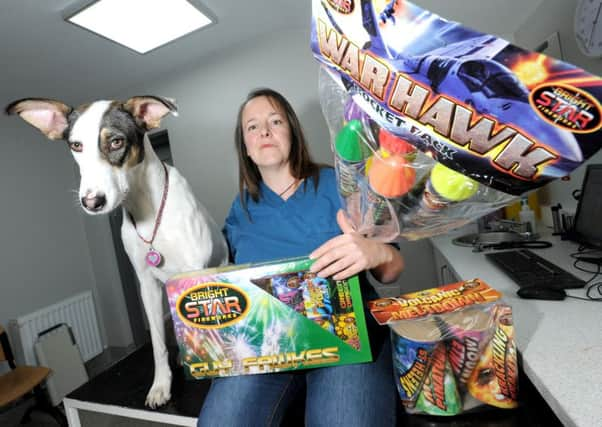North Thoresby veterinary practice issues advice ahead of Bonfire Night


The bangs and flashes of fireworks start in the run up to Bonfire Night and often continue for several weeks, before resuming during New Year’s Eve celebrations, causing misery for many owners and their pets.
Eastfield Veterinary Hospital is urging owners to prepare early before fireworks season gets underway to keep their pets calm and has issued tips for owners whose cats and dogs suffer noise phobia.
Advertisement
Hide AdAdvertisement
Hide AdThe practice is encouraging clients to contact the practice for advice on ways to prevent pets becoming stressed and anxious.
Eastfield Vets also recommends that cats and dogs are kept safely indoors during fireworks season to prevent injury and stress and that windows and doors are kept shut to prevent them bolting through fear.
Pets should also wear collars and tags, while microchips should be up to date so they can be reunited with their owner if they run away.
Clinical Director Jeremy Bodian said: “With the fireworks season stretching over several weeks, this can be a difficult time for pets and their owners, and our advice is to think ahead so you can keep them happy, safe and comfortable.
Advertisement
Hide AdAdvertisement
Hide Ad“Dogs should not be left alone during this time and even pets that have previously shown no fear can become sensitive, so it is advisable to speak to your vet for advice.
“The biggest worry is that many pets will bolt through fear at this time of year so make sure doors and windows are shut.
“Providing a safe place where they can hide, like a den, is a good idea and there are also over-the-counter therapies that can help to keep them calm.”
Playing music can help to calm pets showing signs of fireworks phobia.
Advertisement
Hide AdAdvertisement
Hide AdPheromones, which are available as diffusers, releasing scent undetectable to humans, can have a calming, reassuring effect on pets and can be used for several weeks leading up to fireworks season.
Eastfield Vets has issued tips to owners to keep their pets safe and calm:
1. Keep dogs and cats inside when fireworks are being let off.
2. Make sure your dog is walked earlier in the day before fireworks start.
Advertisement
Hide AdAdvertisement
Hide Ad3. Close windows and doors and block off catflaps to stop pets escaping.
4. Draw the curtains and block out the noise of fireworks with TV or radio.
5. Make sure cats and dogs are wearing collars and tags in case they bolt and ensure microchip details are up to date so they can be quickly reunited with you.
6. Avoid leaving your pet home alone in the evenings when fireworks are going off.
Advertisement
Hide AdAdvertisement
Hide Ad7. Keep calm and reassure your pet to make them feel safe and secure. Shouting at a frightened pet will only make them more stressed.
8. Prepare a safe place or ‘den’ where your pet can hide when fireworks start so they feel safe and comfortable.
9. Cover rabbit hutches or aviaries with blankets to block out sight of fireworks and reduce sound of bangs.
10. Bring hutches or cages indoors, if possible, or into a garage or shed.